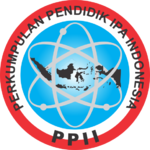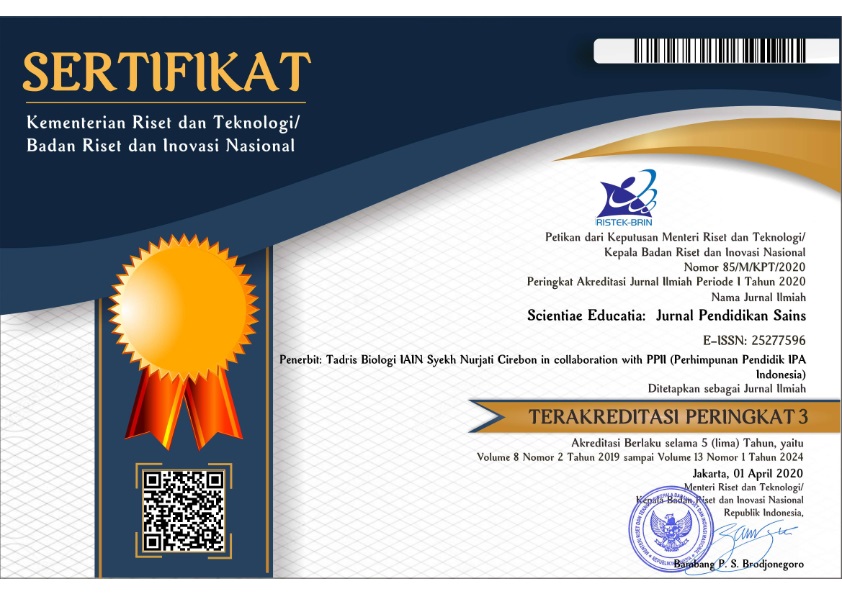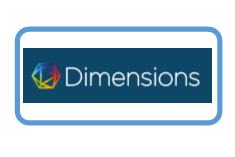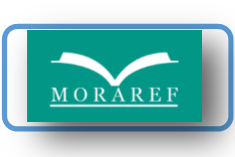The Effectiveness of Worksheet Based Learning of Rotational Dynamics on Students’ Critical Thinking Skills Viewed from IQ Score
(1) Pendidikan Fisika UIN Sunan Gunung Djati Bandung
(2) Pendidikan Fisika UIN Sunan Gunung Djati Bandung
(3) Pendidikan Fisika UIN Sunan Gunung Djati Bandung
(*) Corresponding Author
Abstract
The aim of this study is to find out and analyze the effect of a worksheet based learning of rotational dynamics on students’ critical thinking skills viewed from IQ score and the correlation between critical thinking skills and the students’ IQ score. This research has been conducted in even semester of the academic year of 2017/2018, in university in Bandung area. All students in a university in Bandung City are the population for this study with the target population are all students in the first year in the university year of 2017/2018. The sample in this study is the first semester of Physics Education students as an experimental group, selected using purposive sampling technique, with data collecting tool in the form of written test of critical thinking skill and IQ. The research design used is one shot case design. A hypothesis test is done by using correlation and regression. The whole test of this data analysis used SPSS program. The results of this study indicate that the learning-based student's worksheet on the concept of Rotational Dynamics significantly influences students' critical thinking skills. It can be seen from the score of n-gain which is 0.5. Based on the calculation on correlation obtained value of 0.185 <0.5, it means that  IQ scores correlated weakly to the students’ critical thinking score, while the regression value of 0.303> 0.05, in other words, the students’ IQ score does not affect the students’ critical thinking skills. So it can be concluded that there is no correlation between IQ and critical thinking skills which seen from the results of correlation and regression analysis.
Keywords
Full Text:
PDFReferences
Adnyawati, N. D. M. S. (2011). Pembelajaran berbasis proyek untuk meningkatkan kreativitas dan hasil belajar tentang hidangan Bali. Jurnal Pendidikan dan Pengajaran, 44(1), 52-59. DOI: 10.23887/jppundiksha.v44i1.138
Bakhiet, S. F. A., Haseeb, B.-W. M., Seddieg, I. F., Cheng, H., & Lynn, R. (2015). Sex differences on Raven's Standard Progressive Matrices among 6 to 18 year olds in Sudan. Intelligence, 50, 10-13. DOI: 10.1016/j.intell.2015.01.013
Butler, H. A., Pentoney, C., & Bong, M. P. (2017). Predicting real-world outcomes: Critical thinking ability is a better predictor of life decisions than intelligence. Thinking Skills and Creativity, 25, 38-46. DOI: 10.1016/j.tsc.2017.06.005
Chusni, M. M., Setya, W., Agustina, R. D., & Malik, A. (2017). Peningkatan kemampuan menyusun Rencana Pelaksanaan Pembelajaran (RPP) berbasis saintifik bagi calon guru fisika. Scientiae Educatia: Jurnal Pendidikan Sains, 6(2), 125-143. DOI: 10.24235/sc.educatia.v6i2.1952
Creswell, J. W., & Creswell, J. D. (2017). Research design: Qualitative, Quantitative, and Mixed Methods Approaches: Sage publications.
Dumas, D. (2018). Relational reasoning and divergent thinking: An examination of the threshold hypothesis with quantile regression. Contemporary Educational Psychology, 53, 1-14. DOI: 10.1016/j.cedpsych.2018.01.003
Ennis, R. H. (2011). The nature of critical thinking: An Outline of Critical Thinking Dispositions and Abilities. Paper presented at the Sixth International Conference on Thinking, Cambridge, MA.
Fatimah, S., Ertikanto, C., & Suana, W. (2014). Pengembangan LKS berbasis problem based learning materi pengukuran kelas X SMA. Jurnal Pembelajaran Fisika, 2(6), 105-116.
Firdaus, T., & Sinensis, A. (2017). Video analisis untuk kemampuan menganalisis dan memecahkan masalah materi kinematika pada calon guru fisika. Jurnal Penelitian Pembelajaran Fisika, 8(2), 135-142. DOI: 10.26877/jp2f.v8i2.1721
Fraenkel, J. R., Wallen, N., & Hyun, H. (2012). How to design and evaluate research in education. McGraw-Hill Higher Education.
Golsteyn, B. H., & Schils, T. (2014). Gender gaps in primary school achievement: a decomposition into endowments and returns to IQ and non-cognitive factors. Economics of Education Review, 41, 176-187. DOI: 10.1016/j.econedurev.2014.04.001
Gupta, A., Hammer, D., & Redish, E. F. (2010). The case for dynamic models of learners' ontologies in physics. The Journal of the Learning Sciences, 19(3), 285-321. DOI: 10.1080/10508406.2010.491751
Hariri, A. I., Kartimi, K., & Mulyani, A. (2016). Penerapan pembelajaran berbasis sains budaya lokal ngaseup pada konsep sistem reproduksi manusia untuk meningkatkan keterampilan berpikir kritis siswa kelas XI SMAN 1 Maja. Scientiae Educatia: Jurnal Pendidikan Sains, 5(1), 1-14. DOI: 10.24235/sc.educatia.v5i1.961
Hill, M., Sharma, M., & Johnston, H. (2015). How online learning modules can improve the representational fluency and conceptual understanding of university physics students. European Journal of Physics, 36(4), 1-20. DOI: 10.1088/0143-0807/36/4/045019
Jaelani, E., Wahidin, W., & Roviati, E. (2016). Penerapan media ular tangga bercerita untuk meningkatkan keterampilan berpikir kritis siswa kelas VII pada konsep pencemaran lingkungan di MTS Al-Muatawally Kuningan. Scientiae Educatia: Jurnal Pendidikan Sains, 5(1), 25-38. DOI: 10.24235/sc.educatia.v5i1.962
Mulhayatiah, D., Suhendi, H. Y., & Oktaviani, V. (2017). Hubungan tingkat penalaran dengan hasil belajar mahasiswa melalui evaluasi teknik ranking task pada mata kuliah listrik magnet 1. Wahana Pendidikan Fisika, 2(1), 31-35. Available online: http://ejournal.upi.edu/index.php/WapFi/article/view/4865
Pusfarini, A., & Jalmo, T. (2016). Efektivitas LKM sains berorientasi model pembelajaran berbasis masalah dalam menumbuhkan kecakapan berpikir kreatif. Jurnal Pendidikan Progresif, 6(1), 65-72.
Rahmah, A., Lesmanawati, I. R., & Wahidin, W. (2015). Penerapan model pembelajaran inkuiri terbimbing untuk meningkatkan keterampilan berpikir kritis siswa pada pokok bahasan ekosistem kelas X di SMA Negeri 1 Krangkeng. Scientiae Educatia: Jurnal Pendidikan Sains, 4(1), 1-7. DOI: 10.24235/sc.educatia.v4i1.480
Ramos, J. L. S., Dolipas, B. B., & Villamor, B. B. (2013). Higher order thinking skills and academic performance in physics of college students: A Regression Analysis. International Journal of Innovative Interdisciplinary Research, 1(4), 48-60.
Redhana, I. W. (2013). Model pembelajaran berbasis masalah untuk peningkatan keterampilan pemecahan masalah dan berpikir kritis. Jurnal Pendidikan dan Pengajaran, 46(1), 76-86. DOI: 10.23887/jppundiksha.v46i1.1694
Richardson, K., & Norgate, S. H. (2014). Does IQ measure ability for complex cognition? Theory & Psychology, 24(6), 795-812. DOI: 10.1177/0959354314551163
Ritdamaya, D., & Suhandi, A. (2016). Konstruksi instrumen tes keterampilan berpikir kritis terkait materi suhu dan kalor. Jurnal Penelitian & Pengembangan Pendidikan Fisika, 2(2), 87-96. DOI: 10.21009/1.02212
Rokhmat, J. (2017). Penanaman karakter positif pelajar melalui pembahasan fenomena-fenomena fisika dan pendekatan analogi (hasil kajian perkulihan fisika dasar). Jurnal Pendidikan Fisika dan Teknologi, 1(1), 52-60. DOI: 10.29303/jpft.v1i1.235
Russo, C. F. (2004). A comparative study of creativity and cognitive problem-solving strategies of high-IQ and average students. Gifted Child Quarterly, 48(3), 179-190. DOI:10.1177/001698620404800303
Saregar, A. (2016). Pembelajaran pengantar fisika kuantum dengan memanfaatkan media phet simulation dan LKM melalui pendekatan saintifik: Dampak pada Minat dan Penguasaan Konsep Mahasiswa. Jurnal Ilmiah Pendidikan Fisika Al-Biruni, 5(1), 53-60. DOI: 10.24042/jpifalbiruni.v5i1.105
Sari, J. R., Kartimi, K., & Fitriah, E. (2015). Penerapan pembelajaran biologi berbasis sains budaya lokal kesenian sintren pada konsep spermatophyta untuk meningkatkan keterampilan berpikir kritis siswa SMAN 1 Ciwaringin. Scientiae Educatia: Jurnal Pendidikan Sains, 4(1), 1-15. DOI: 10.24235/sc.educatia.v4i1.267
Sofiatin, S., Azmi, N., & Roviati, E. (2016). Penerapan bahan ajar biologi berbasis kontekstual untuk meningkatkan keterampilan berpikir kritis siswa pada materi perubahan lingkungan dan daur ulang limbah (studi eksperimen kelas X MIPA di SMAN 1 Plumbon). Scientiae Educatia: Jurnal Pendidikan Sains, 5(1), 15-24. DOI: 10.24235/sc.educatia.v5i1.971
Stanovich, K. E., & West, R. F. (2014). The assessment of rational thinking: IQ≠RQ. Teaching of Psychology, 41(3), 265-271. DOI: 10.1177/0098628314537988
Suhendi, H. Y., Kaniawati, I., & Maknun, J. (2014). Peningkatan pemahaman konsep dan profil miskonsepsi siswa berdasarkan hasil diagnosis menggunakan pembelajaran ECIRR berbantuan simulasi virtual dengan instrumen three-tier test. Paper presented at the Mathematics and Sciences Forum 2014, 205-214.
Tiruneh, D. T., De Cock, M., Weldeslassie, A. G., Elen, J., & Janssen, R. (2017). Measuring critical thinking in physics: Development and Validation of a Critical Thinking Test in Electricity and Magnetism. International Journal of Science and Mathematics Education, 15(4), 663-682. DOI: 10.1007/s10763-016-9723-0
Tsai, C.-Y., Chang, Y.-H., & Lo, C.-L. (2018). Learning under time pressure: Learners who think Positively Achieve Superior Learning Outcomes from Creative Teaching Methods Using Picture Books. Thinking Skills and Creativity, 27, 55-63. DOI: 10.1016/j.tsc.2017.11.003
Webb, C. A., DelDonno, S., & Killgore, W. D. (2014). The role of cognitive versus emotional intelligence in Iowa gambling task performance: What's Emotion got to Do with it? Intelligence, 44, 112-119. DOI: 10.1016/j.intell.2014.03.008
Wulandari, R. T., Sutawidjaja, A., & Susiswo, S. (2015). Pembelajaran berdasarkan teori van hiele berbantuan Hands on Activity (HoA) untuk meningkatkan kompetensi pengetahuan dan keterampilan pemecahan masalah. Jurnal Pendidikan: Teori, Penelitian, dan Pengembangan, 1(8), 1479-1486. DOI: 10.17977/jp.v1i8.6666
DOI: 10.24235/sc.educatia.v7i1.2162
Article Metrics
Abstract view : 795 timesPDF - 374 times
Refbacks
- There are currently no refbacks.
Scientiae Educatia: Jurnal Pendidikan Sains indexed by:

This work is licensed under a Creative Commons Attribution 4.0 International License.
Stat Counter (Link)



1.png)












